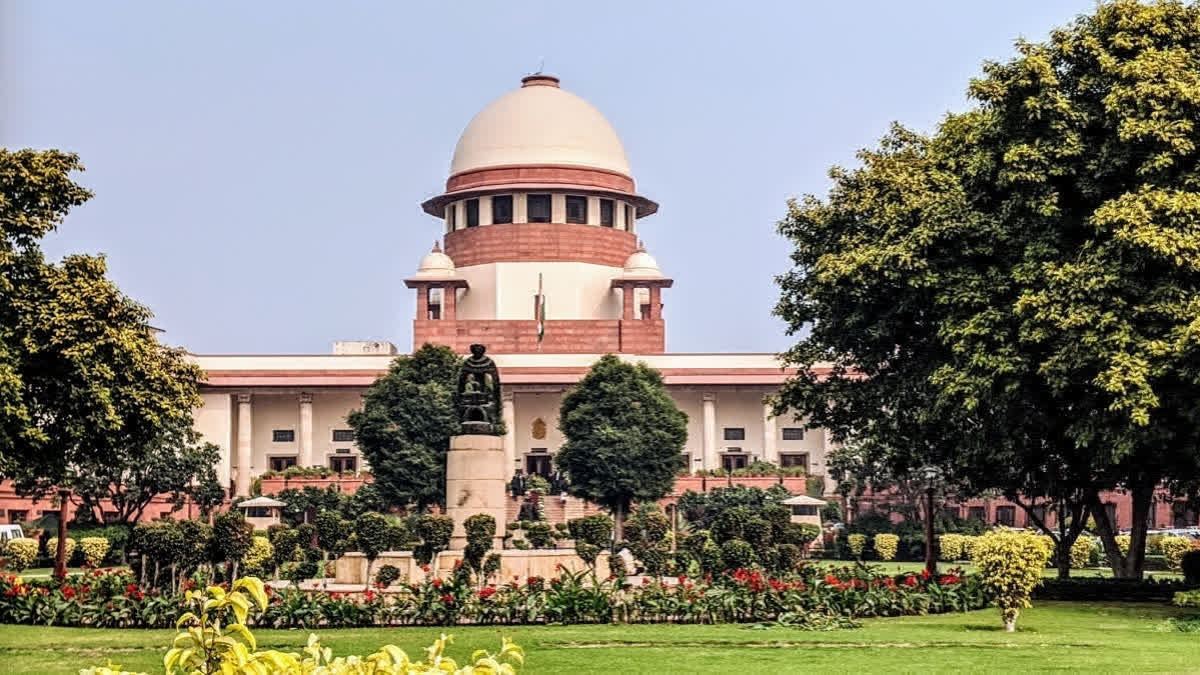New Delhi: The Supreme Court on Thursday ruled caste-based discrimination in prisons as unconstitutional, scrapping provisions in several state prison manuals that assigned jobs to inmates based on their caste.
A bench led by Chief Justice DY Chandrachud ruled that such practices violate Article 15 of the constitution, which prohibits discrimination on grounds of religion, race, caste, sex, or place of birth. The court called it 'sad' that, even after 75 years of independence, caste-based discrimination remains ingrained in society.
In the landmark judgment, the Supreme Court gave reference to Article 17 to substantiate its point that everyone is born equal and there cannot be any stigma attached to the existence, touch or presence of any person. The apex court further said not providing dignity to prisoners is a relic of the colonisers and pre-colonial mechanisms.
The top court asked states to amend their prison manuals within three months and warned that they would be held liable for caste-based discrimination. The bench held that assigning menial tasks like cleaning and sweeping to marginalised castes while reserving cooking for higher castes is a violation of the constitution. It said that prisoners of all castes have the right to fair distribution of work in jails.
"All such provisions (enabling caste discrimination) are held to be unconstitutional," the court said. "All states are directed to make changes in accordance with the judgment." The court also ordered the deletion of the caste column in convict and undertrial registers. It directed that references to habitual offenders in prison manuals should be based on legislative definitions, without reference to caste or tribe.
"Segregating prisoners on the basis of caste will reinforce caste discrimination... segregation will not facilitate rehabilitation..Not providing dignity to prisoners is a relic of the colonial system," the Chief Justice said.
The apex court said refusal to check caste practices or prejudices amounts to cementing of such practices. "If such practices are based on the oppression of the marginalized castes, then such practices cannot be left untouched. The Constitution mandates an end to caste discrimination and untouchability," it added.
"Authoritarian regimes of the pre-constitutional era saw prisons not only as places of confinement but as tools of domination. This Court, focusing on the changed legal framework brought out by the Constitution, has recognized that even prisoners are entitled to the right to dignity," it said.
The CJI, who authored the judgment on behalf of the bench, said over 75 years since independence, we have not been able to eradicate the evil of caste discrimination.
He also mentioned Article 21 and Article 23 which, he said, envisages the growth of individual personality. The bench said several provisions of different prison manuals restrict the labour of certain communities.
The apex court delivered the 148-page judgment on a plea by Sukanya Shantha challenging various provisions in state prison manuals on the grounds of being violative of Articles 14, 15, 17, 21, and 23 of the Constitution of India.
The apex court ruled against caste-based discrimination like division of manual labour, segregation of barracks and bias against prisoners of de-notified tribes and habitual offenders by holding as 'unconstitutional' the jail manual rules of 10 states for fostering such biases.



